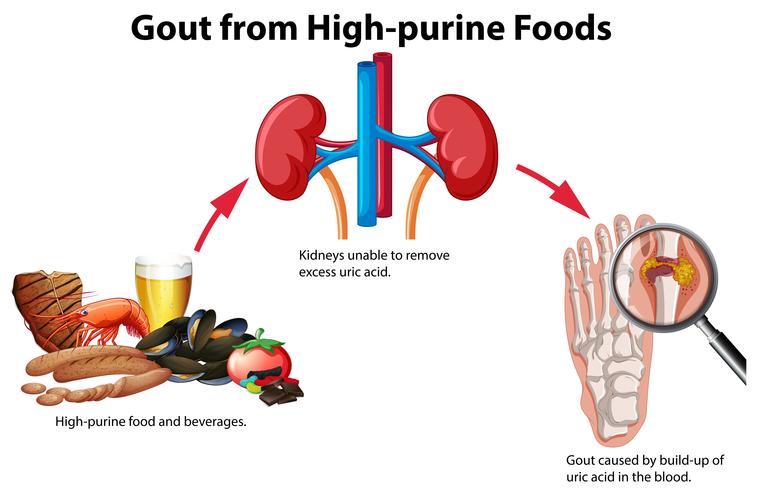In this blog, I will discuss the effects of fucoidan and gout. According to the research conducted by Kenneth Thorpe on August 30, 2018, nearly four million Americans suffer from gout. About 4% of people suffer from this condition. Also, the risk of getting these diseases increases with age.

Gout is a disease in which uric acid remains as crystals in the joints and kidneys, causing severe pain in the joints and causing renal dysfunction. Hyperuricemia causes severe pain. Uric acid is a substance that is produced by the degradation of purines (nucleic acid). If people overeat purine-rich food or if there is something wrong in the metabolic pathway, the purines in the body begin to accumulate little by little. When the purines are broken down in the body, the final product, uric acid, is produced.
The uric acid produced is excreted from the kidney and internal tract. The level of uric acid in the blood will be determined by the balance between the amount produced uric acid and the discharged amount in the body. Hyperuricemia appears when the uric acid level in the blood increases.

A sign of gout is discomfort or itching in the affected area. Pain develops if the treatment is not possible at the onset of gout, and usually peaks within 24 hours. The pain of a gout attack can be excruciating and painful, making it difficult to do the daily lives. After that, the intense pain lasts a few days, and the symptoms subside in a week or two. Besides, in the case of gout, the affected area becomes red and swollen, accompanied by a feeling of warmth.
Also, if hyperuricemia is left unchecked, urate crystals will deposit under the skin of the joints of the limbs and earlobes, making it appear bumpy — the bump called gout nodule. Gout nodules do not cause pain, unlike gout attacks. However, as it progresses, joints deform, and bones break down, affecting daily life.

So, start taking uric acid-lowering medication to decrease uric acid levels in the blood. However, the medication has severe side effects like liver dysfunction and myelosuppression with a skin hypersensitivity reaction.
But as you know, fucoidan does not have toxicity and affects uric acid nephropathy and be able to alleviate the symptom of uric acid nephropathy. According to the study of Xinlin Wu et al., fucoidan decreased the deposition of urate crystals and inflammatory cellular influx in the tubule. Also, tubular ectasia and interstitial fibrosis were improved by fucoidan, suggesting that kidney damage was attenuated by fucoidan.
